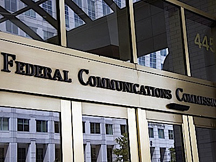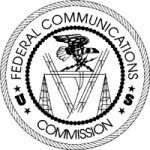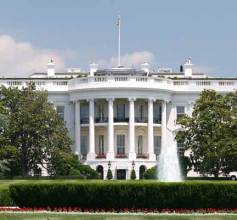
In a last-ditch effort to salvage its wireless broadband system from official rejection due to interference to GPS, LightSquared Inc. has filed a lengthy rebuttal to the Federal Communications Commission (FCC) notice of its plan to withdraw the agency’s conditional approval of the proposed high-power terrestrial network.
In a last-ditch effort to salvage its wireless broadband system from official rejection due to interference to GPS, LightSquared Inc. has filed a lengthy rebuttal to the Federal Communications Commission (FCC) notice of its plan to withdraw the agency’s conditional approval of the proposed high-power terrestrial network.
In what appears to be a foreshadowing of the company’s long-implied threats of litigation, LightSquared executive Jeff Carlisle alluded to “enormous and quantifiable . . .damages to LightSquared resulting from the Commission’s breach of its agreement with LightSquared and its violation of LightSquared’s constitutional rights.”
The company, backed by Harbinger Capital hedge fund operator Phil Falcone, wants to build an all-terrestrial network in RF spectrum (1525-1559 MHz) allocated for mobile satellite services (MSS) that is next to the L1 frequencies at which GPS and other GNSS services operate.
Despite the agencies’ heavy reliance on results from an extensive evaluation last year by a Technical Working Group (TWG) set up in cooperation with the GPS Industry Council and overseen by LightSquared, the company argues that the “testing is deeply flawed and fatally biased.” The FCC International Bureau’s original approval for LightSquared to proceed was based on the condition that concerns about interference with GPS be resolved.
In comments submitted on the final day of the comment period (March 16, 2012), Carlisle, LightSquared’s executive vice-president for regulatory affairs and public policy, claimed that “no scientifically valid evidence exists that even 1% of GPS receivers would experience adverse performance consequences as a result of LightSquared’s operations, as currently proposed.”
The 255-page LightSquared comment filing was accompanied by a 176-page “technical appendix.”
In what it characterized as “a precipitous turn of events” and “one of the most disastrous ‘bait-and switch’ episodes in the history of telecommunications regulation,” LightSquared accused the FCC of “an arbitrary and capricious process.”
The company criticized the FCC’s provisional decision to vacate its January 2011 conditional waiver order a day after the agency received a letter from the National Telecommunications and Information Administration (NTIA) stating that “no practical way” exists to mitigate potential GPS interference posed by LightSquared
As in the past, LightSquared laid the blame for the problem on GPS manufacturers and receiver design.
As an alternative, LightSquared asked the federal agencies to find other frequencies further away from GPS in which it could operate.
“And should the Commission conclude (despite the overwhelming evidence to the contrary) that those solutions do not work,” Carlisle wrote, “then the history and the equities, as well as LightSquared’s significant investment and reasonable reliance, would mandate that the Commission and NTIA, working with LightSquared, identify and engineer a partial or total exchange of alternative terrestrial spectrum rights.”
As expected, LightSquared opponents expressed support for the FCC’s latest plan. In comments also filed on March 16, the Coalition to Save Our GPS stated, “LightSquared has failed to meet the International Bureau’s condition requiring LightSquared to show that any potential interference to GPS has been resolved. Consequently, the waiver which was subject to this condition must be revoked.”
And Deere & Company, which manufactures precision farming equipment that incorporates the kind of wideband GPS technology most sensitive to LightSquared interference, submitted comments that noted, “The expansive technical record includes irrefutable evidence of severe potential interference to GPS developed under LightSquared’s co-leadership of and direct participation in the FCC-mandated TWG. . . .”
Moreover, the company said it “is committed to working with the Commission and other spectrum stakeholders on spectrum issues relevant to GPS, and continues to support Commission efforts to improve spectrum efficiency, provided that such initiatives do not degrade the performance of GPS and future GNSS receivers and constellation signals.”
Replies to the latest round of comments may be filed with the FCC until March 30.





